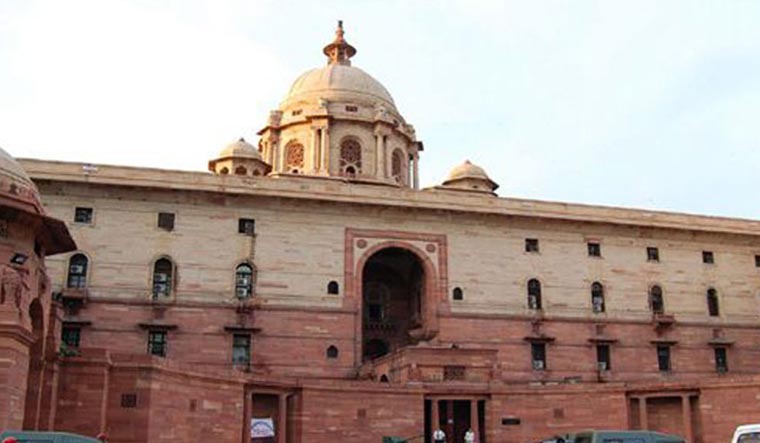The Centre has begun holding consultations with states to review the functioning of police forces and lend central assistance to meet the unique challenges faced by them. The move comes at a time when the CBI has launched an inquiry into former Mumbai police commissioner Param Bir Singh's complaint of corruption against former Maharashtra home minister Anil Deshmukh and allegations of transfers and postings of police officers.
Police reforms aside, the Union home ministry has decided to draw a decadal roadmap to counter fresh challenges in each state.
From strife-torn Jammu and Kashmir to Naxal hotbed of Chhattisgarh and cities like Delhi and Mumbai, each state is facing unique challenges in policing, said government officials.
Union home secretary A.K. Bhalla is holding consultations with states and Union territories, represented by their home secretaries, to formulate the roadmap keeping in mind the unique challenges each state and UT is facing and which are likely to impact law and order and internal security. This roadmap will be based on inputs provided by the states and Union territories.
The first meeting between the MHA and state governments was held last week.
The home ministry will work on a central assistance plan in tandem with each state. It may be recalled that the MHA is the nodal body for police modernization in the country. Under the scheme, the MHA has been lending financial assistance as well as guidance to equip state police forces with the technological expertise, weaponry and training to meet their unique challenges.
Further, the task of postings and transfers of Indian Police Service officers across states is also handled by MHA in consultation with state governments.
Of late, some state governments, facing flak over law and order problems, have been demanding more central assistance and shared responsibility in improving policing. The issue blew up in the face of the Centre and states after the developments in Maharashtra police left many red faces.
Senior IPS officer Prakash Singh said reforms in policing have been neglected far too long and the responsibility lies with both the BJP and the Congress governments at the Centre.
Singh, 85, was awarded the Padma Shri for his contribution to civil services. But he is a disappointed man today.
After Singh approached the Supreme Court in his efforts to usher police reforms, the apex court judgement on police reforms came in 2006 and a Police Act drafting committee was set up under former attorney general Soli Sorabjee.
Singh said the committee prepared a fresh Model Police Act, improving on the model police bill that had been drafted by the National Police Commission.
The expectation was that the Central government would pass a central legislation on the subject. Under the Constitution, a bill passed by one state can be adopted by other states through a resolution in the two houses of state assembly.
''Even if this Constitutional provision was not used by every state, the simple arithmetic was that the same Act would be adopted in states where the ruling party or their coalition partners would agree. So at least half of the country would have the same Police Act. And other states may have also fallen in line,'' said Singh.
''But the Centre and the Delhi government kept on passing the buck and the result is that there is no central legislation till date. In fact, several consultations were held between the MHA and the Delhi government but they kept exchanging notes. The Delhi police bill is still not finalised,'' he said.
Numerous steps were taken during the UPA tenure on the issue. The Kamal Kumar committee gave its own set of recommendations. This was followed by the Bureau of Police Research and Development, which was asked by the MHA to step in.
However, with no central legislation in place, police reforms became a subject handled by each state individually. The Supreme Court directions contained a caveat that these directions on police reforms would remain till such time the central or state governments don't pass their own legislation.
''Supreme Court can fill a legislative vacuum but it cannot legislate. This gave an opportunity to states to bring their own Police Acts which were only good on paper. Bihar was the first to pass a legislation,'' said Prakash Singh recalling a comment by a Bihar police official who said that it took Bihar back not to British days but East India company days.
Once again, policing in the state has drawn the attention of both the central and state government. It remains to be seen how the MHA steers the police forces away from their constraints to make them effective and corruption free.





